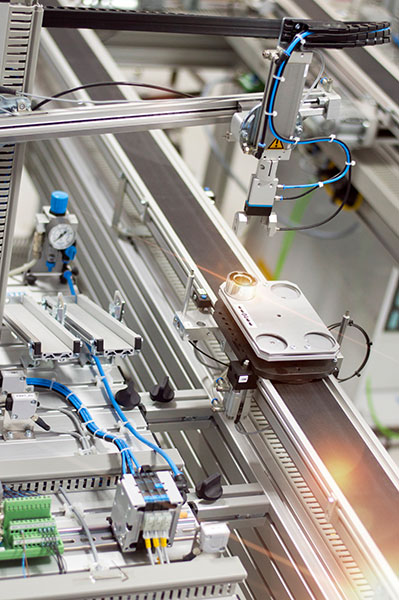WHAT DO WE MEAN BY IIoT (industrial internet of things)?
Internet of things is referred to as the intelligent connectivity of smart devices by which objects can sense and communicate with one another. IoT in industries has proved to be an aid solving challenges of costs, production and client satisfaction. It has led to a complete reconfiguration of industries. IIoT is all about simplifying and automating every single process in any industry.
The leaps in power processing, mobility, and AI have taken the idea way ahead. From where and how we initiated with water and steam to mechanize production, and to where we have reached in terms of technology today is a true Revolution!
But the question is why does the gap between reimagination and execution still exist?
Addressing the gap and coming up with a business model that incorporates IoT is paramount.
WHY DO THE MANUFACTURING INDUSTRIES OF TODAY NEED A SMART FACTORY?
Manufacturers are concerned that their organizations are falling behind in the race to keep pace with IIoT. They are not able to execute a data-centric factory since they still lack readiness towards it. Manufacturing industries are seeking more efficient operations to match and survive the competition in the market. They need better product differentiation, better efficiency in production processes, and an adequate data integration source. The factories need to be ‘Smart’ in real means in order to withstand the forthcoming competition.
WHAT MANUFACTURERS CONSIDER WHILE IMPLEMENTING IoT IN THEIR INDUSTRY?
IoT enables us to evaluate and change decisions about the physical world. When two or more devices are digitally connected, the transmission of the data to any software application further becomes very convenient. It enables you to derive insights and act in real time. By cutting down the decision time and bringing intelligence at the edge, the factory ends up sashing costs.
IoT does not just provide operational efficiency, it also opens several other revenue streams. By the use of sensors, Smart devices, real-time data processes, organizations can shift from a product based enterprise to a data-driven enterprise. This will assist the manufacturer to improve business and disrupt the industry.
WHAT ARE THE RESULTS A MANUFACTURER IS STRIVING TO ACHIEVE?
Digital factory
A unit which is digitally connected helps to establish a much better line of command. This enables the operation managers and factory heads to remotely manage the scattered factory units.
Monitoring the flow of production
With the help of IoT, an entire product line can be monitored in real time. This real-time access enables to make any alterations and adjustments in the operations with respect to cost consciousness.
Supply chain management
The material can be easily tracked as it moves through the supply chain by the medium of sensors. These sensors enable manufacturers to trace the manufacturing cycle times and material flows. Thus, enabling them to predict future issues, and cutting down
capital requirements.
WHAT ARE THE CHALLENGES TO ADAPT IoT IN INDUSTRIES?
Though manufacturers are wanting to adopt newer technologies and enter the data-driven world, yet they lack the readiness to implement it in their industries. There has to be a comprehensive digital and IoT business model. But even then there’s a need for new talents and skill sets that fall short.
Most leaders haven’t built a framework that supports IoT. IT tasks like virtualizing systems, migrating to cloud for better and massive data storage, and adopting a software-defined approach; are not paid any attention.
Next, there is no segregation of networks and the data has no encryption as it flows through the internet. The manufacturers are in a great need for better regulations and standards in order to realize the potential of IoT in manufacturing industries.
*As data becomes the new currency and want for process insights grows massively, the Internet of things will play the master role.
A year or two ago, it was on everyone’s radar, and now it is actually shaping a smart and data-centric world. The idea of connecting people, machines and devices was imagined to be a futuristic vision of the digital business, but with the advancement in AI, mobility, and cloud, IoT has emerged to be the Mainstream!
